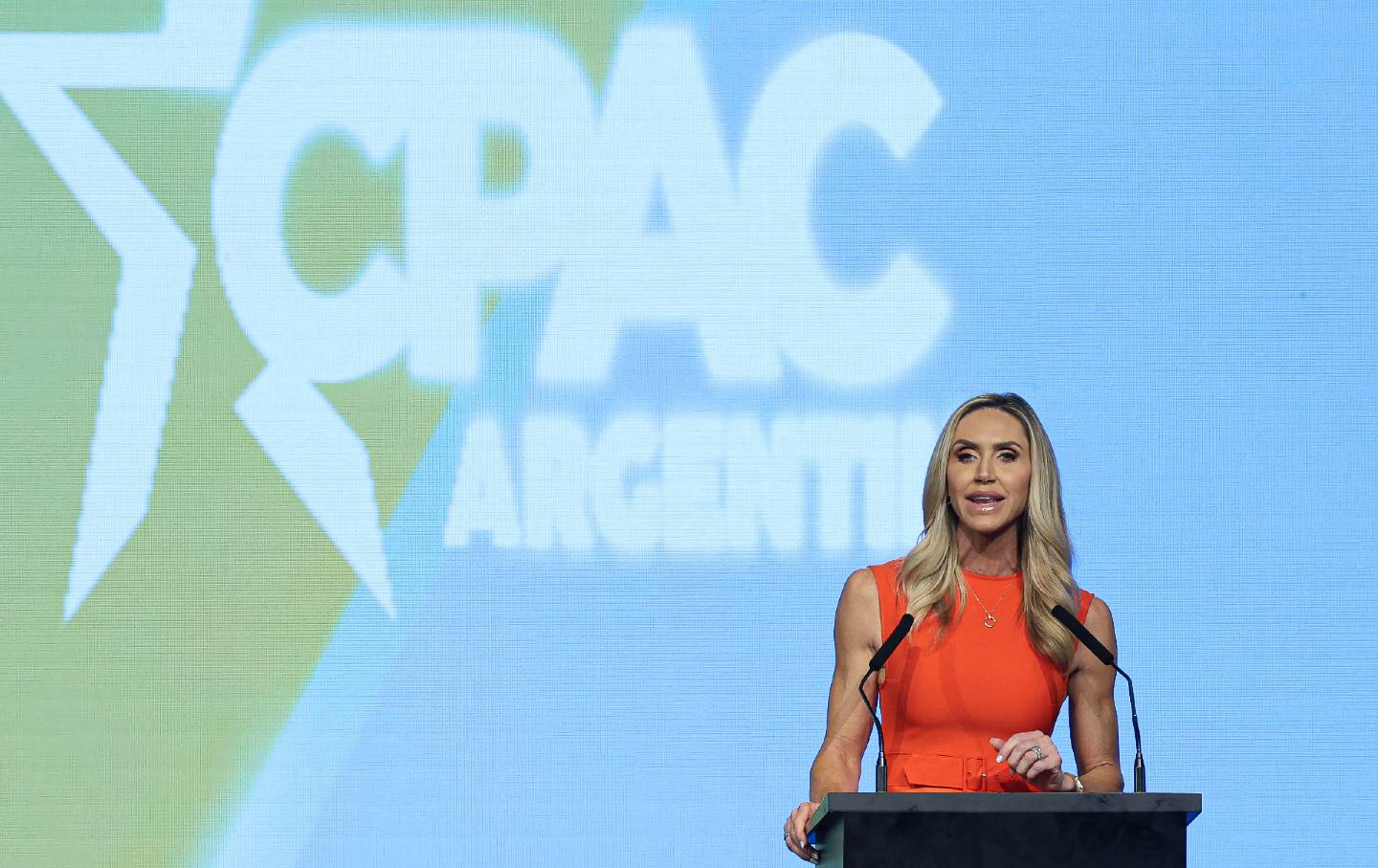Muslim Voters Are Sending a Message
With the US election looming on the horizon, Muslim communities in the UK cast their ballots in a way that put Gaza at the forefront.

Pro-Palestinian activists and supporters hold placards and Palestinian flags as they gather in front of the Elizabeth Tower at the Palace of Westminster, home to the Houses of Parliament, in central London, on April 17, 2024.
(Justin Tallis / AFP)
On July 4, while Americans were celebrating Independence Day, something remarkable was unfolding on the other side of the Atlantic. British Muslims, who make up about 6 percent of the total population, were coming out in numbers to defy the political current and vote against the party that was destined to form the government. It was a compelling subplot in a general election that was otherwise devoid of interest. The odds on a Labour victory had become so short at the bookmakers that gamblers had to wager £100 to win a pound back.
The bookies weren’t wrong; in the early hours of Friday morning, it became obvious that the Conservative Party had slipped to its worst-ever defeat, eventually returning 121 seats out of a total 650. Reflecting the vagaries of the first-past-the-post electoral system, Labour had won in a landslide, despite receiving fewer votes than in the catastrophic defeat of 2019.
But in an ironic twist, the most sensational results in the election were in the constituencies that Labour ended up losing. Last week, five pro-Palestinian independents, who were running in areas with significant Muslim populations, shook the political establishment by winning their seats. Of the five, only former Labour leader Jeremy Corbyn had a national profile.
In the run-up to the general election, and for the first time in history, the Muslim community of the United Kingdom began to organize itself into a voting bloc that could challenge the status quo. Mosques, community centers, and civil society organizations joined hands to create a political movement that was committed to putting the Gaza crisis at the center of the election.
After the Hamas attack on October 7, the two main parties in Westminster reached a consensus that Israel’s military response constituted a legitimate form of self-defense. In October, then-leader of the opposition Keir Starmer said that Israel had a right to withhold water and power from Gaza’s civilian population. A month later, he whipped his members of parliament to vote against a cease-fire motion, raising the ire of British Muslims who have historically supported Labour.
These voters were galvanized by an organization called The Muslim Vote, which identified around 75 constituencies where Muslims formed a large enough part of the electorate to influence the result and endorsed independent candidates who were running on a pro-Gaza platform. Along with the five candidates who won, there were many who lost narrowly and managed to build up a public profile.
Given the often parochial nature of American politics, it’s unlikely that the shock waves from these results will have reverberated in the White House. But if American Muslims take comparable action to their British counterparts in November, President Joe Biden ought to be very concerned indeed. Of the million or so Muslims who turned out in the 2020 presidential election, approximately 80 percent chose to vote for President Biden. Today, the number supporting him has collapsed to around 5 percent, according to a survey released by Emgage, an organization that aims to boost political engagement in America’s Muslim communities.
Such a drop could prove catastrophic in states like Michigan and Pennsylvania where Biden’s majority is smaller than the total Muslim population. The success of the uncommitted movement has already proven that Muslim voters, as well as the anti-war left, are capable of organizing themselves into a bloc. More than 13 percent of those who voted in the Michigan Democratic Primary cast their ballots as “uncommitted.” That number was almost 19 percent in Minnesota, totaling around 46,000 voters, which was more than Hillary Clinton’s margin of victory there in 2016. In Arizona, a state that Biden carried by around 10,000 votes in 2020, almost 16,000 Democrats voted for Marianne Williamson after she called for a cease-fire.
Perverse though it may seem, what might end up saving Biden is the virulence of Donald Trump. It seems doubtful that Muslim voters in the United States would be willing—whether through apathy or protest—to chart a course for an angry Islamophobe to regain the White House where he could resume the sort of policies that led them to flock to President Biden. Unlike the British general election, where it was clear far in advance that the Conservatives wouldn’t win, the outcome in November is expected to be tight, and there is certainly no reason to believe that a Trump presidency would be any better for Muslims than the last time he was in office.
Trump, who delivered the now infamous Muslim ban, has consistently demonstrated his contempt for the Palestinian people, in both word and deed. He was the president who formally recognized Jerusalem as the Israeli capital and the candidate who used the term “Palestinian” as an insult for a rival during June’s televised debate. He has also promised crackdowns on pro-Palestinian protests and threatened to deport foreign students who demonstrate on college campuses.
But with two pro-cease-fire candidates on the ballot—Jill Stein and Cornel West—the Biden/Harris ticket seems to have put itself in a position where it is asking thousands of Muslim voters to reelect them by voting against their conscience. Time will tell how they choose to respond.








